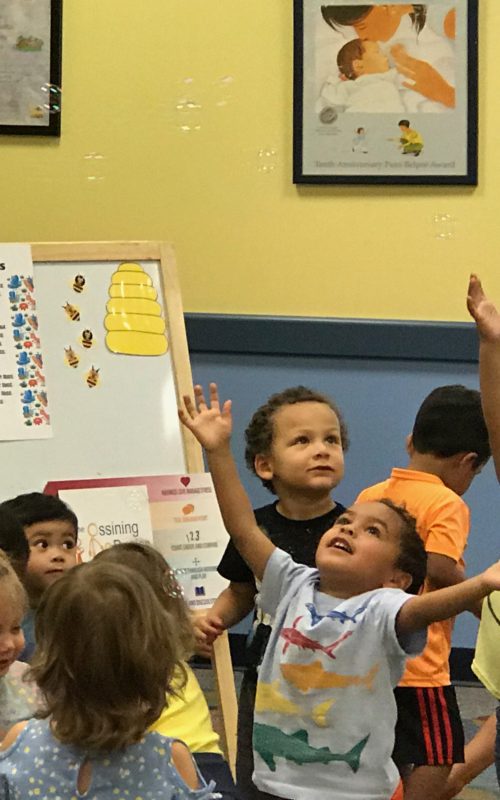
What is early literacy?
Early literacy is what your child knows about reading and writing before they actually learn to read and write.
Research shows that children are more prepared to become successful readers when parents and caregivers engage in early literacy activities with them: talking, singing, reading, writing, and playing.
Beginning at birth, what you do every day helps prepare your child to become a successful reader.
How can I incorporate early literacy into my child's day?
Using the five practices (Talking, Singing, Reading, Writing, and Playing) to support early literacy skills in enjoyable ways is the best way to help children enter school ready to learn to read.
TALKING
Even very young children stop and pay attention if you talk to them. They are learning language and beginning to understand the world around them. Ask questions, point out the world around them, describe to them what you are doing as you make food, mix in new words so they can continue expanding their vocabulary. The more words your child is familiar with, the further ahead they will be when learning to read.
SINGING
Singing slows down language. It helps children hear the smaller sounds in words. There is also a different note for each syllable, so they hear words broken down into parts. This helps children later sound out words. Some songs have interesting words that we would not hear in normal conversation with young children, so they are also building vocabulary. As you sing with children, you have the opportunity to support their pre-reading skills in little ways that add up to make a difference by the time children enter school.
READING
Take the opportunity to share books with your child every day. This is the single most important activity you can do to prepare your child for reading. Read with expression and make this interaction as fun and engaging as possible. Model to your child the benefits of having a special connection with books. Remember, the more positive the reading experience is the more likely your child will continue reading as they get older. Start by giving really young children board books. Allow the older ones to turn the pages and choose the book they want to read (even if it is the same one over and over). Talk about the pictures if your child’s attention span isn’t long enough to read an entire book. There are things to read wherever you look, so take advantage of every opportunity to read to your child: street signs you see while driving, cereal boxes at the kitchen table, the fascinating magazine or newspaper article you are looking at with them. Every exposure counts toward developing those pre-reading skills.
WRITING
Drawing pictures, scribbling, and attempting to write letters and words help a child practice their writing skills. Any activity that gets the fingers moving will help a child develop the tiny muscles in the hands. Other activities could include fingerplay rhymes like The Itsy Bitsy Spider or Thumbkin, manipulating small blocks or beans, or tracing letters in shaving cream with their fingers. All of these activities help children understand that print has meaning
PLAYING
Play is a time when children put their ideas and feelings into words. Pretending allows your child to tell a story and explore story structure. When a child takes a box and imagines it as a car they are thinking symbolically. This kind of thinking is the same kind of thinking that is used for reading, when they learn that letters and words represent real things. Play with your children and stretch their imaginations. Not only will you be making wonderful memories, but you will be supporting their pre-reading skills.

What is OPL doing to encourage early literacy?
We offer many programs that encourage early literacy. In addition, we are always happy to help you select books or other materials to share with your children.
Welcome to Our World – Baby Gift Box
Early Literacy Play Area

More information
These organizations have additional information to help you out.
